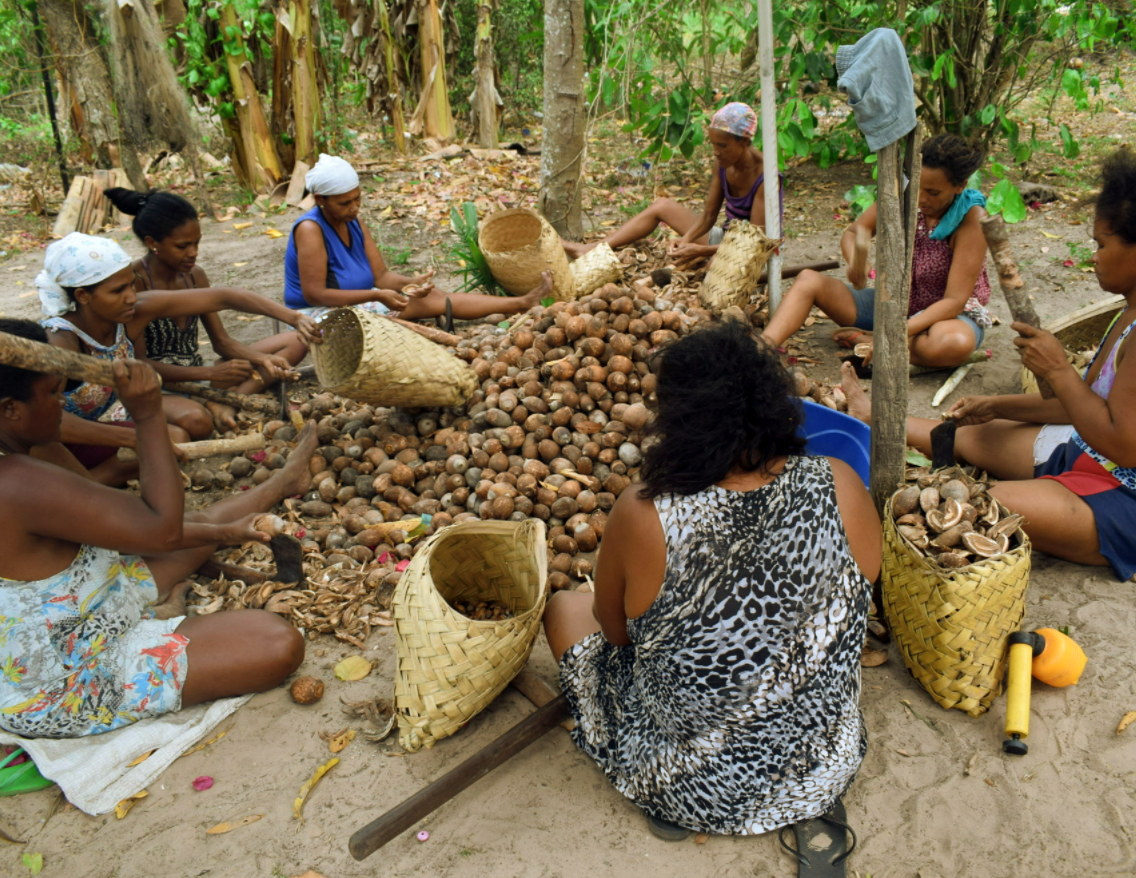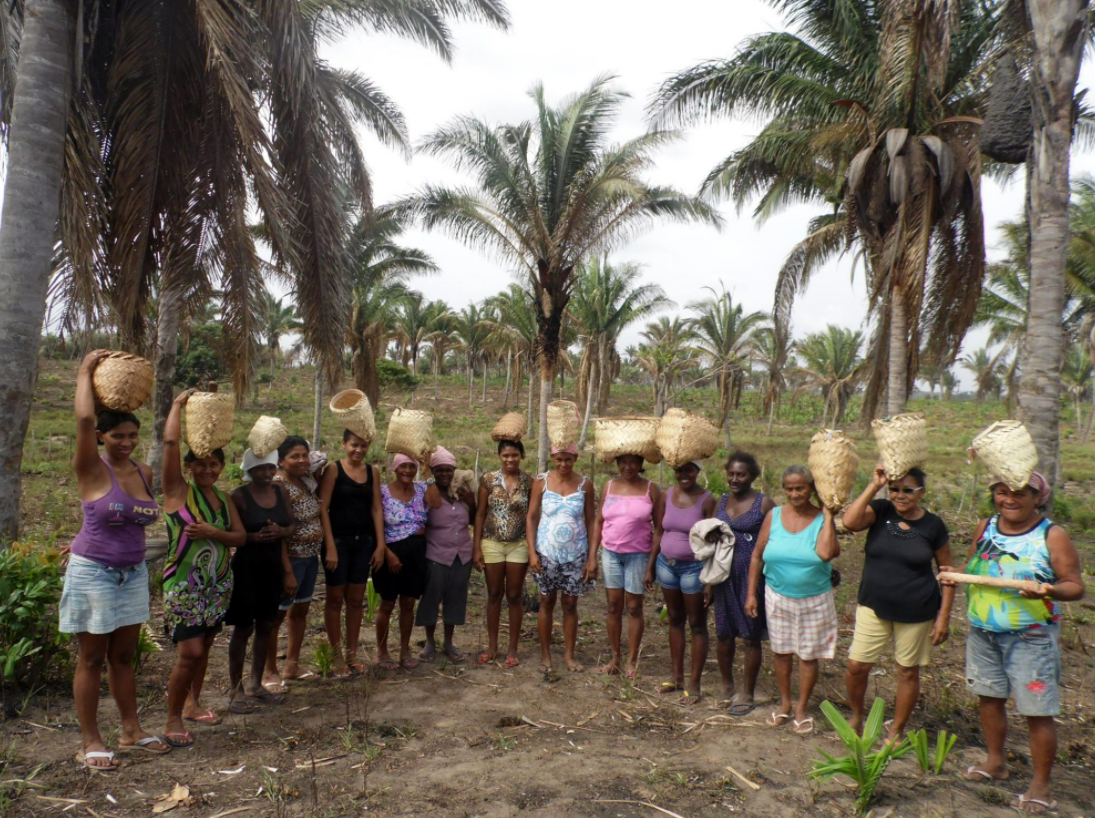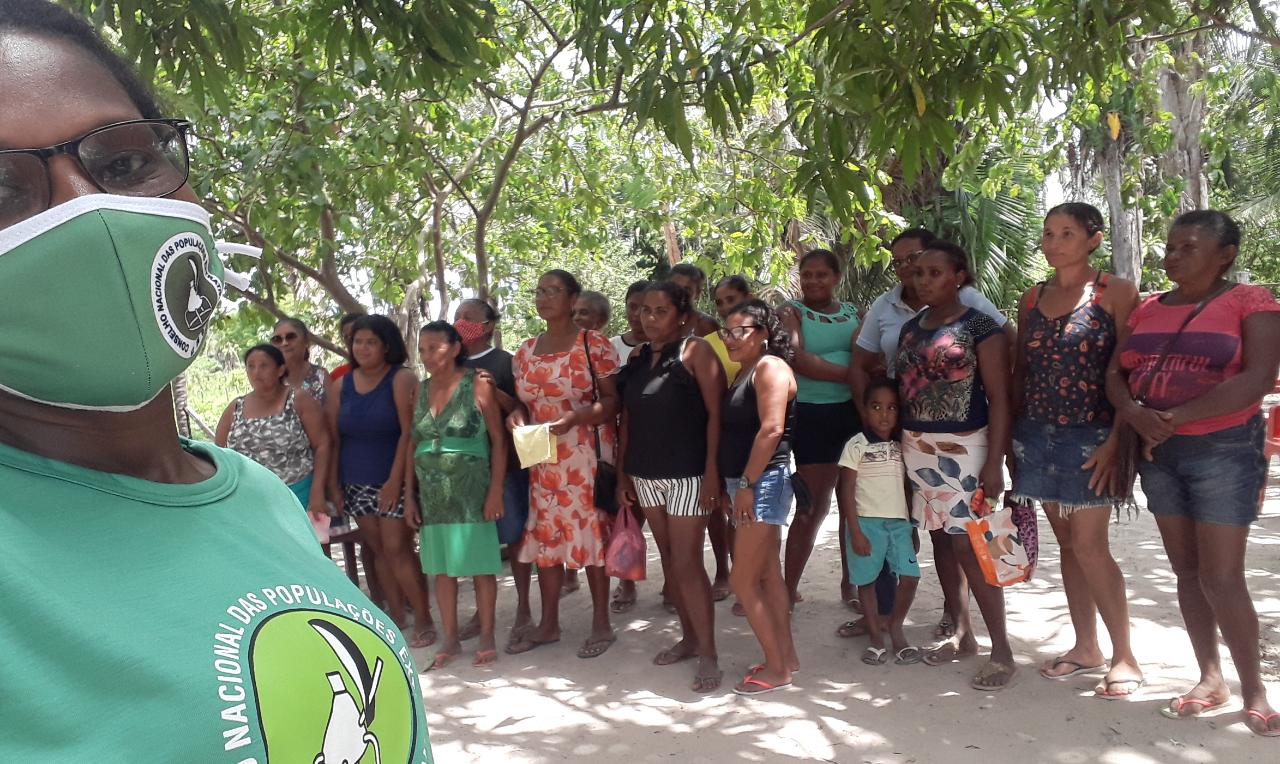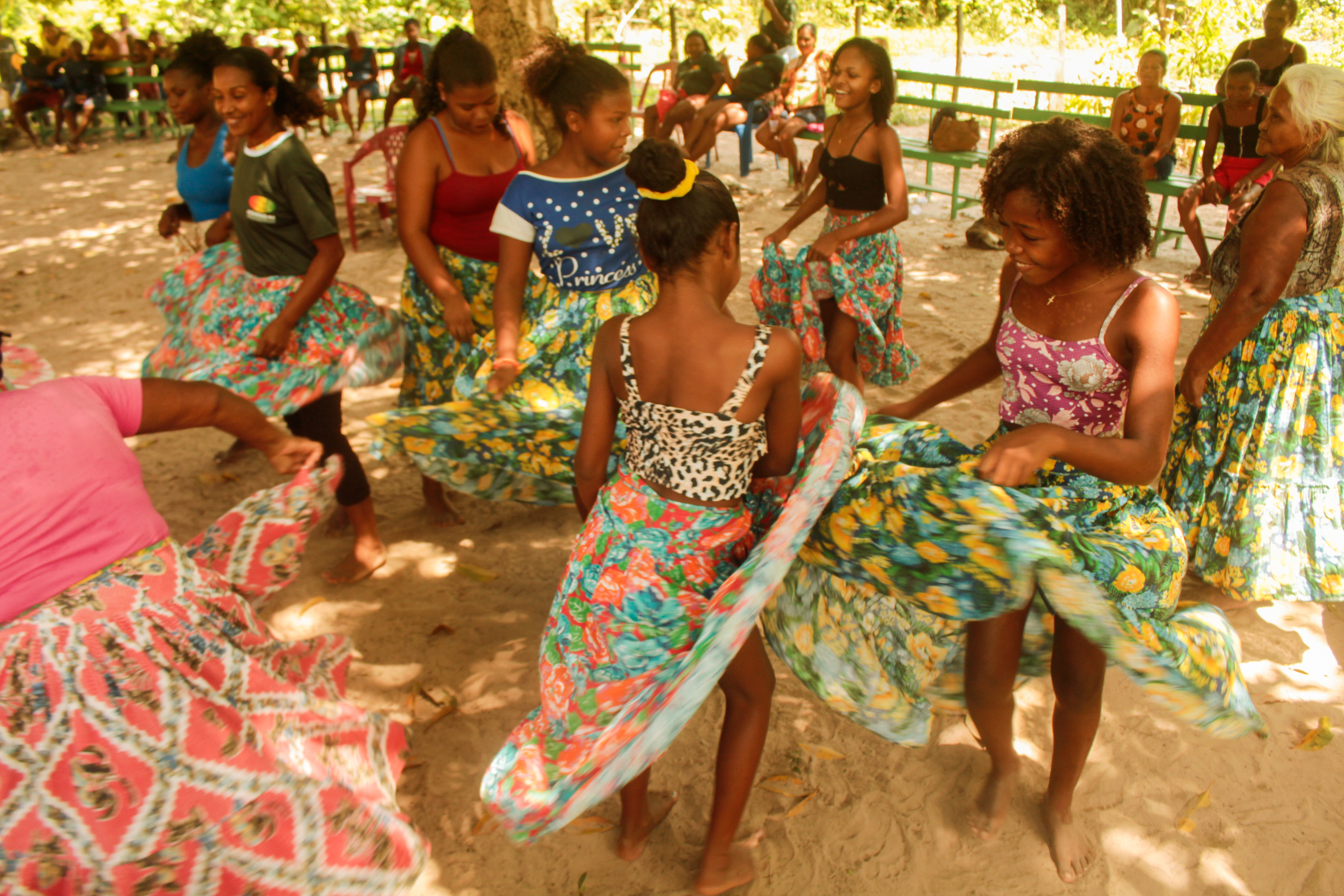Quilombola women in Brazil take action to end climate change, achieve gender equality and ensure a sustainable future
Date:
Geovânia Machado Aires is a professor and holds a master's degree in Political Science and International Relations from the graduate programme Social and Political Cartography of the Amazon at the State University of Maranhão and the Federal Rural University of Rio de Janeiro. She is a researcher for the New Social Cartography of the Amazon project and the Center of Sciences and Knowledge project: Creation of Living Museums in the Affirmation of Knowledge of Traditional Peoples and Communities. In addition to being a professor, she is also regional director of the National Council of Extractive Populations of the State of Maranhão, and secretary of the Administration of Penalva (Maranhão).

Brazilian professor and researcher Geovânia Machado Aires, 34 years old, lives in the quilombo of Bairro Novo, located in the municipality of Penalva. She belongs to the Quilombola Women, Collectors and Processors of Babassu Coconuts and works in the public administration of the municipality of Maranhão. She is a partner in the project Human Rights of Indigenous and Quilombola Women: A Governance Issue, developed by UN Women with funding from the Norwegian Embassy.
The initiative is being developed in the states of Maranhão and Pará to place the human rights of indigenous and quilombola women at the center of governmental management through the development of state and municipal policies that respond to the needs of women in these two communities and ensure the continuous improvement of their economic and social conditions.
Geovânia has dedicated herself to teaching the community that nothing is wasted from the babassu palm; on the contrary, everything is used and transformed through traditional knowledge, passed down from generation to generation. The leaves can be used to make roofs for houses and baskets to transport coconuts and decorative objects. Cosmetics such as soaps and oils are produced from almond oil and can also be used as fuel. The oil can also be used as cooking oil. The shell of the babassu coconut is used as charcoal. The commercialization of the products is an essential source of income for the Brazilian quilombola communities.

Quilombola women: activists and protagonists
Geovânia has inherited a family legacy in which quilombola women are active protagonists in the preservation of the environment and adaptation to climate change as determining factors in achieving equality and a more sustainable future for all.
According to research conducted by the New Social Cartography of the Amazon project (the University of the State of Maranhão), in which Geovânia participates, there are approximately one million women in Brazil who process babassu nuts. Of these, at least 400,000 are part of the Interstate Movement of Women Babassu Nut Processors. This association has made visible the actions of these women against environmental devastation, in favor of gender equality, the defense of territories, and the law of free access to babassu areas, among others.

Geovânia warns that climate change is a problem that has been affecting traditional communities for many years, bringing with it the deforestation of babassu forests, fires, and the struggle for natural resources. "The impact is palpable in every corner of the environmental protection zones, and those who suffer are the residents who are at the grassroots, struggling to survive." Women are at the forefront of the actions against climate change, the deforestation of native areas, babassu palms, acai, mangaba, and other fruits of particular concern as it affects an entire food security chain in that space.

Education and empowerment to face the challenges
The UN Women project included a training space on public policies for women and intersectionalities. Geovânia participated in this experience and assured that she is sharing the new knowledge and tools with her community.
"I learned a lot about women's empowerment," Geovânia indicates. "However, we still have persistent challenges for our rights to be guaranteed and spaces for dialogue to be opened," Machado Aires stresses.
Despite the challenges, Geovânia uses her knowledge to promote meetings with women from Penalva, and her work has been socialized with approximately two thousand women. "Every day, I apply the empowerment values I acquired in the course, especially the recognition of rights and responsibilities," she concludes.